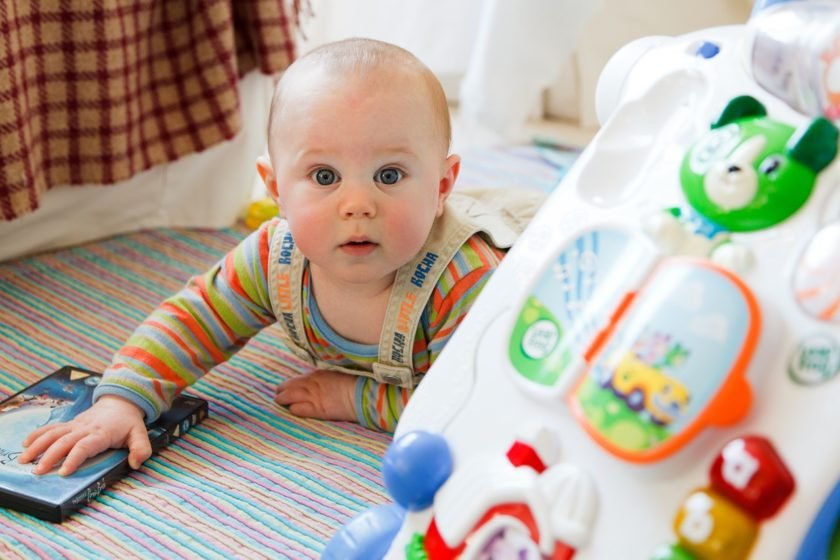Most parents do everything they can to make sure that their children are safe and healthy. They feed them healthy food, they bandage them up when they fall and teach them to look both ways when they cross the street. The scary thing is, many children are being exposed to dangerous chemicals right inside their own homes, through their toys.
The chemicals found in many plastic children’s toys are so dangerous they have been banned from use in many consumer products. Children are most susceptible to the dangerous effects of these endocrine-disrupting chemicals, known as phthalates, because their neurological and endocrine systems are still developing. Despite the growing pile of evidence showing the harmful effects of these chemicals, one of the world’s largest chemical companies is fighting to continue using them.

ExxonMobil Fighting To Continue Using Dangerous Chemicals
ExxonMobil, the world’s largest publicly held gas and oil company, is fighting to continue using phthalates – chemicals that are known to be endocrine disruptors. More than 25% of the company’s $16 billion net profit in 2015 came from sales of petroleum-based productsincluding plastics, batteries, synthetic fibers and household detergents. ExxonMobil products phthalates to make plastic pliable.
As evidence of the dangers of phthalates piled up, Congress limited and banned several phthalates in 2008. In 201, the Consumer Products Safety Commission recommended banning eight phthalates from children’s toys, but the ban hasyet to be finalized.

ExxonMobil insists that the chemicals are not harmful. Eve Gartner, an Earthjustice attorney, explained, “Exxon has been sending letters, having meetings, they’re just constantly in CPSC’s face in a way designed to suggest that, if you go the wrong way on this, we’re going to sue you.”
The Dangers Of Phthalates
There are about a dozen different types of phthalates that have the ability to enter the body and cause adverse health effects. You may be exposed to the harmful chemicals through the air, food, water, cosmetics and cleaning products. Vinyl products and other plastic materials can also leak phthalates into the environment, increasing your exposure. Children are often exposed through teething toys and other plastic toys.

According to the U.S. Environmental Protection Agency, more than 470 million pounds of phthlates are produced every year. Constant exposure to phthlates can cause the chemicals to remain in your body. Phthalates are known endocrine disruptors, which mean they interfere with the body’s endocrine system. They mimic natural hormones and trick the body into an exaggerated response.
Chemicals that mimic estrogen may trigger the growth of breast cancer cells, block hormones from reaching receptors or cause an underactive or overactive thyroid. Endocrine-disrupting chemicals have also been shown to negatively affect reproduction. Even lower levels of exposure can result in health issues, such as an imbalance of growth hormones.
How To Reduce Your Exposure To Phthalates
- Avoid plastic food containers and plastic wrap.
- Avoid plastic children’s toys.
- Read labels on cosmetics and avoid those that contain phthlates.
- Avoid products that include “fragrance.” Phthalates commonly hide under this term.
- Read labels and look for PVC-free products in items such as children’s lunch boxes, backpacks and storage containers.
- Do not microwave plastic containers or plastic wrap.
- Eat fresh, raw, whole foods instead of packaged foods.
- Buy products in glass bottles instead of plastic or cans.
- Use natural cleaning products.
- Use natural fabric softeners and dryer sheets.
- Check your home’s tap water for contaminants and filter the water if necessary.